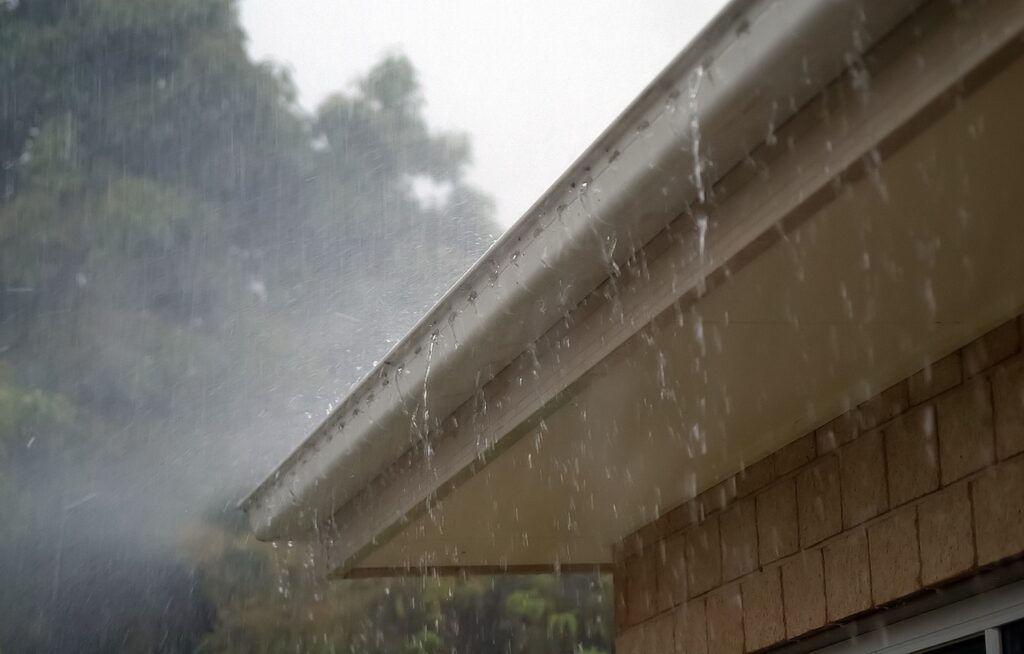If you’re thinking about buying a home or deciding which home improvements to prioritize, the roof might not be the first thing on your mind. A new kitchen, upgraded flooring, or fresh landscaping often seem more exciting.
But here’s the truth—your roof isn’t just the top layer of your home. It’s your first line of defense against the elements, a key factor in energy efficiency, and a major contributor to home value. Whether you’re considering a roof replacement or just want to understand its importance, this guide will help you make an informed decision.
What Does a Roof Actually Do?
Your roof does more than just keep the rain out. Here are some of the key roles it plays:
1. Protection from Weather & External Elements
A good roof shields your home from rain, snow, wind, and harsh sunlight. Without proper roofing, even minor storms can lead to leaks, mold, and interior damage.
2. Structural Stability
Your roof helps distribute weight evenly across the structure, reducing stress on your home’s walls and foundation. Without it, water can seep in, weakening your home’s overall stability.
3. Energy Efficiency & Lower Utility Bills
A well-maintained roof with proper insulation and ventilation keeps your home comfortable year-round. It prevents heat from escaping in winter and blocks excess heat in summer—helping cut heating and cooling costs.
4. Boosts Curb Appeal & Home Value
A roof can make or break a home’s first impression. A clean, well-maintained roof increases property value, while a worn-out one can turn buyers away.
5. Prevents Moisture & Mold Buildup
Proper ventilation keeps humidity levels in check, reducing the risk of mold growth. This is especially important in high-humidity areas where moisture buildup can lead to health hazards.
The Benefits of Keeping Your Roof in Top Shape
A strong, well-maintained roof doesn’t just protect your home—it saves you money and increases resale value.
1. Higher Home Value
Real estate experts agree: a new or well-maintained roof adds thousands to a home’s value. Potential buyers see it as one less major expense to worry about.
2. Lower Energy Bills
By preventing drafts and keeping your HVAC system from working overtime, a solid roof cuts down on energy costs year-round.
3. Fewer Emergency Repairs
Routine maintenance keeps small issues—like missing shingles or minor leaks—from turning into major, expensive problems.
4. Keeps Your Home Safe
A compromised roof puts everything inside at risk. Structural collapses, water damage, and mold growth are just a few of the dangers of neglecting roof care.
What Happens If You Ignore Your Roof?
Skipping roof maintenance might save you money now, but it can lead to serious (and expensive) issues later. Here’s what can happen if your roof starts to fail:
1. Water Damage & Leaks
Even a small leak can cause major problems—ruining ceilings, walls, insulation, and even compromising your home’s foundation.
2. Higher Energy Bills
Holes, cracks, or worn-out materials can make it harder to keep your home warm in winter and cool in summer.
3. Pest Infestations
Rodents, insects, and even birds can sneak in through gaps or broken shingles, causing even more damage inside your home.
4. Home Value Drops
A damaged roof isn’t just an eyesore—it’s a red flag for potential buyers, leading to lower offers or longer time on the market.
Should You Replace Your Roof or Focus on Other Home Improvements?
Many homeowners struggle to decide whether a new roof is worth the investment compared to other upgrades. Here’s why the roof should come first:
✅ 1. It Protects Everything Else
A failing roof puts your entire home at risk. No matter how nice your floors, kitchen, or landscaping look—none of it matters if water starts leaking inside.
✅ 2. It’s a Smarter Financial Investment
A roof replacement has a high return on investment (ROI)—often around 60-70%, meaning you’ll get much of your money back when you sell.
✅ 3. It Helps with Insurance & Financing
Many insurance companies charge higher premiums for homes with old or damaged roofs. Plus, if you’re selling, buyers may have trouble securing a mortgage without a solid roof inspection.
Signs It’s Time for a New Roof
Not sure if your roof needs replacing? Look for these warning signs:
✔ Your Roof is 20+ Years Old – Most shingles last 20-30 years before needing replacement.
✔ Missing, Curling, or Cracked Shingles – A sign of wear that can lead to leaks.
✔ Sagging Areas – This could indicate serious structural problems.
✔ Leaks or Water Stains on Ceilings & Walls – A clear sign that your roof is compromised.
✔ Excessive Granules in Gutters – If your shingles are shedding granules, they’re breaking down.
Final Thoughts: Don’t Ignore Your Roof
A new roof may not be as exciting as a kitchen remodel or a backyard patio, but it’s one of the smartest investments you can make.
Before buying a home—or deciding what project to tackle next—take a close look at the roof. If it’s nearing the end of its lifespan, address it sooner rather than later. A strong, reliable roof protects your investment, keeps your home comfortable, and can save you thousands in long-term repairs.

